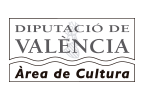The industrialization process, as an essential part of the capitalism of production developed in the mid-20th century, has resulted in a massive displacement of rural population to the cities which has emptied the rural areas and has productively overexploited them on a large-scale. Only the 17% of Spanish population lives in the countryside, in settlements where traditional lifestyles are slowly dying out. Being a woman in the rural world means, therefore, being doubly invisible. But every day more and more women choose to settle down in the countryside and change their lives by taking charge of small-size agricultural companies and livestock farms which are more respectful with the natural environment. Up to the point that the rural world might be the field where the benefits of applying a female approach- if not a feminist one- to work life are becoming most obvious.


Font imatges: Facebook Les Espigolaores
►Film: ‘Entre el dia i la nit no hi ha paret’ (There is not a wall between night and day). Les Espigolaores (The Gleaners), Spain. 2017, VOSE (Original Version Subtitled in Spanish), 60’
Documentary about women who live or have lived in the Campanar neighbourhood or in la Partida de Dalt or in the disappeared Partida del Pouet, vegetable production areas in the outskirts of Valencia, where the urban and rural worlds jumble together and question each other. These women, main characters of the film, explain, through their personal stories, which was their work and the tasks it involved as well as their wisdom and life experience, thus calling into question the masculinized image of the rural world commonly internalized.
Free access until reaching full capacity.
The tickets will be handed out in the Information Point at the museum’s hall half an hour before the beginning of the film.
Sarai Fariñas (Gandía, 1982) is a sociologist and an expert in development education who works for Cerai. She is the author of the study Dones rurals del País Valencià. Veus que parlen de treball invisible, ecodependència i interdependència. (Rural women from the País Valencià. Voices which talk about invisible work, ecodependence and interdependence.). She has worked in government agencies linked to the cooperation sector (AECID-Nicaragua), dealing with sustainability and gender issues in international organizations (UN-Guatemala) and as a consultant in works of Gender Development.
María Ferreiro (Teixeiro-Curtis, 1976) is in charge of the Secretaría das Mulleres do Sindicato Labrego Galego-SLG-CCLL (Secretary of women of the Galician farmers’ union). She is a producer of cow milk and manager of a cow farm in Teixero (A Coruña).








